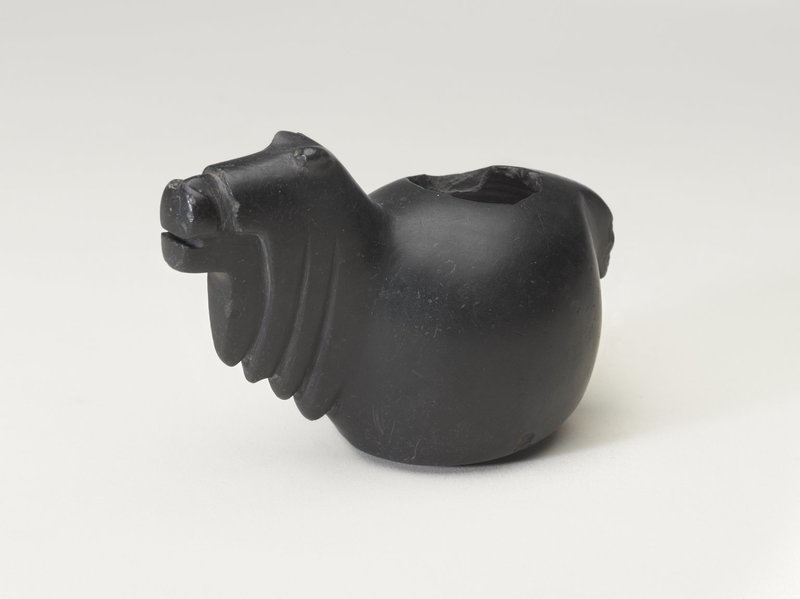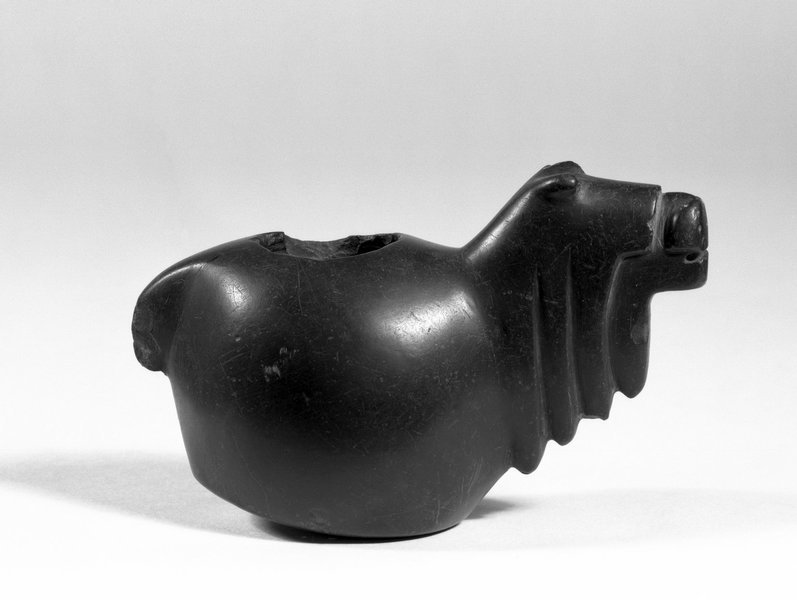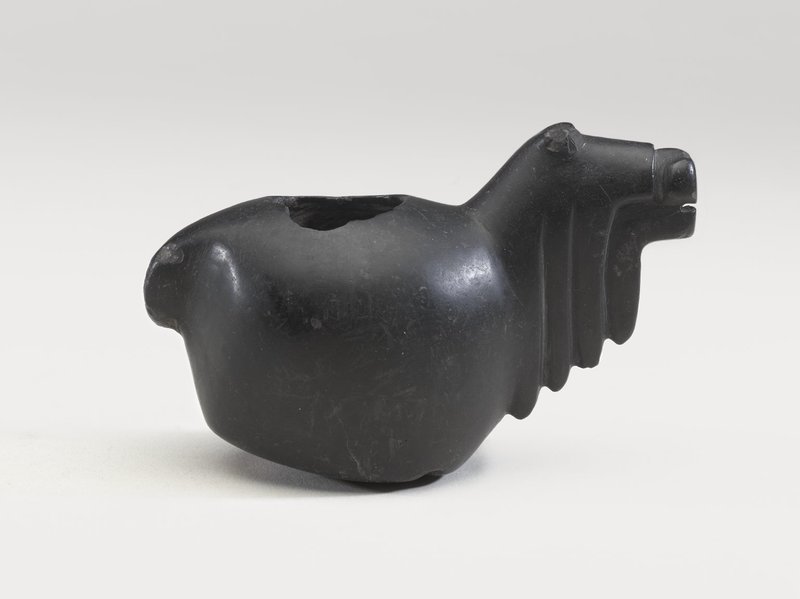Camelid Conopa Item Number: 86.224.85 from the Brooklyn Museum



Description
Small black stone vessel (conopa) in the form of an alpaca with a hole in the animal's back forming a small bowl. Stylized head with round muzzle, small rounded ears, a series of folds under the neck, short rounded protruding tail. Legs are not shown. Condition: Some chips on tail, on rim of opening. Small shallow scratches on surface.
Credit Line
Gift of the Ernest Erickson Foundation, Inc.
Label
Small stone figurines, or conopas, of llamas and alpacas were the most common ritual effigies used in the highlands of Peru and Bolivia. These devotional objects were often buried in the animals’ corrals to bring protection and prosperity to their owners and fertility to the herds. The cylindrical cavities in their backs were filled with offerings to the gods in the form of a mixture including animal fat, coca leaves, maize kernels, and seashells.
Pequeñas figurillas de piedra, o conopas, de llamas y alpacas eran las efigies rituales más comunes usadas en el altiplano de Perú y Bolivia. Estos objetos devocionales eran con frecuencia enterrados en los corrales de los animales para atraer protección para sus dueños y fertilidad a los rebaños. Las cavidades cilíndricas en sus espaldas se llenaban con ofrendas a los dioses en forma de una mezcla de grasa animal, hojas de coca, granos de maíz y conchas.
Item History
- Made between 1470 and 1532
What
- Name
- Camelid Conopa
- Identification Number
- 86.224.85
- Type of Item
- “Camelid Conopa” ?
- Material
- stone
- Overall
- length 3.0625 in, width 2.1875 in, height 4.75 in
Who
- Culture
- Inca
Where
- Holding Institution
- Brooklyn Museum
When
- Creation Date
- between 1470 and 1532
Other
- Location
- Arts of the Americas Galleries, 5th Floor
- Classification
- Vessel